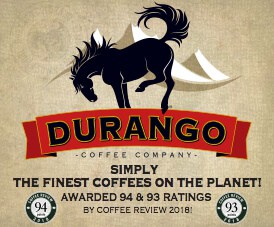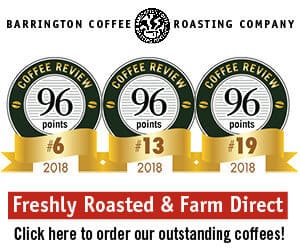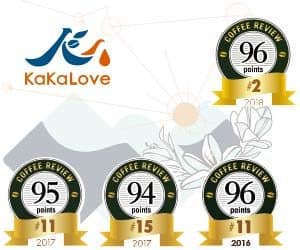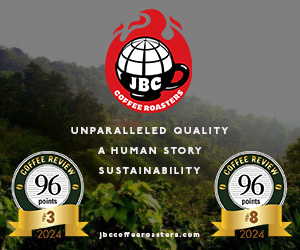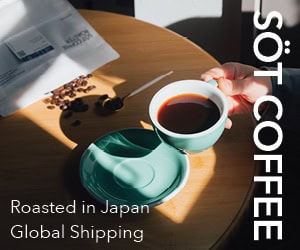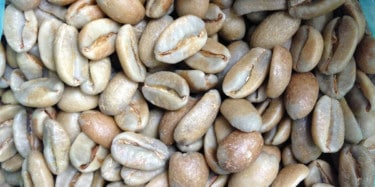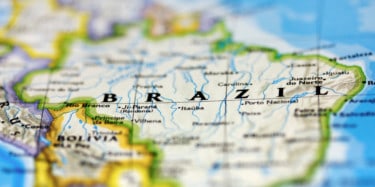Produced entirely from trees of the respected Catuai variety of Arabica. In 2014 this coffee received the highest score a dried-in-the-fruit or “natural” processed coffee has ever received in a Brazil Cup of Excellence competition. Starbucks green buyer Ann Traumann bought all 2244 pounds of the winning lot. This is a limited edition coffee, one of an array of very select small-lot coffees that
SEARCH RESULTS
Dharma Blend Espresso
This blend consists of three distinctive coffees: Costa Rica Sonora Estate Honey-Processed Red Catuai, an Ethiopian Boke Natural (dried-in the-fruit) Process Grade 1, and a dried-in-the-fruit Brazil Araponga. Temple Coffee is a quality-focused retail and wholesale specialty roaster active in Sacramento, California since 2005. Committed to sourcing, roasting and brewing the finest coffees, Temple
Bolivia Finca Las Tacanas
Apasionado represents an unusual coffee program at the Finca Las Tacanas in Bolivia, through which the coffee lover adopts a tree. The first 12 ounces of coffee costs $39.00 and is roasted to order, and sent to the buyer along with a certificate of adoption with a picture of the tree. Those who have adopted trees then can order additional 12-ounce bags of coffee on demand that are roasted to order
Panama Los Lajones Natural
Produced from trees of the Caturra and Yellow Catuai varieties of Arabica and processed by the dry or “natural” method, meaning the beans were dried inside the fruit rather than after the fruit has been removed, as is the case with wet-processed or “washed” coffees. Big Shoulders Coffee is a Chicago artisan roaster that emphasizes its fresh-roasted, no-nonsense approach to fine coffee. Visit
Costa Rica Santa Rosa 1900
From trees of the Catuai variety of Arabica grown at an elevation of around 6,000 feet, meticulously prepared at La Lia Micro-Mill. Allegro Coffee Roasters is a long-established specialty roaster and subsidiary of Whole Foods Market. This coffee was roasted at the new in-store boutique Allegro roastery-café located in Berkeley, California, the second such Allegro in-store roastery to open,
Geshas and the Rest: Single-Variety, Single-Lot Coffees
The variety play – marketing coffee by the botanical variety of the tree that produced the coffee – is one of the latest trends in the high-end specialty world. True, some roasters who submitted samples for this month’s article still confused tree variety (botany) with origin (geography), and sent us coffees from a single growing region (Sumatra, say) rather than coffees that reasonably can be
Panama Estate Reserve: Elida Estate Natural
A fine example of a “natural” or dry-processed coffee, meaning the beans were dried inside the fruit, encouraging a flavor profile that is sweeter and deeper-toned than the more familiar wet-processed coffees of Panama. Produced entirely from tree of the respected Catuai variety of Arabica. The Lamastus family’s Elida Estate averages the highest growing elevations in Panama: 5,500 to 8,200 feet
Elida Estate Panama
A fine example of a “natural” or dry-processed coffee, meaning the beans were dried inside the fruit, encouraging a flavor profile that is sweeter and deeper-toned than the more familiar wet-processed coffees of Panama. Produced entirely from tree of the respected Catuai variety of Arabica. Elida Estate is one of Panama’s most distinguished farms. Based in the San Diego area, Bird Rock Coffee
Brazil Serra Do Bone
Processed by the pulped natural method, in which the coffee is dried (in this case on raised beds) with the skin removed but the fruit pulp still adhering to the beans. Produced by farmer Carlos Sergio Sanglard from trees of the respected Catuai variety of Arabica. Temple Coffee is a quality-focused retail and wholesale specialty roaster active in Sacramento, California since 2005. Committed to
Keynote Perennial Brew
Keynote Perennial Brew is a rotating single-origin coffee. The version reviewed here is a Brazil coffee processed by the pulped natural or “honey” method, in which the skin of the coffee fruit is removed but the beans are dried with all or some of the fruit pulp still adhering to the beans. Produced entirely from trees of the respected Yellow Catuai variety of Arabica. Chromatic prides itself in
Guatemala Coffee
Courtesy of Kenneth Davids, 21st Century Coffee: A Guide Despite its relatively small size, Guatemala offers a diverse coffee geography unusually rich in variety of terroirs, local processing variations and traditional tree varieties. At one time a producer of large volumes of commercial-grade coffee, Guatemala’s total volume of exports has decreased over the last decades while the coffee it does
Honduras Coffee
Courtesy of Kenneth Davids, 21st Century Coffee: A Guide Honduras is a coffee paradox. On one hand it produces a large volume of coffee, and most of it is decent to very good coffee. Honduras usually ranks first in Central America, third in Latin America and fifth globally in coffee exports by volume. This is a tremendous achievement for such a relatively small country, and an important one for
Costa Rica Coffee
Courtesy of Kenneth Davids, 21st Century Coffee: A Guide The traditional Costa Rica cup profile is classic, admired for its consistency, balance and immaculate freedom from taint — and often patronized for that same clean balance. One finds it accused of an absence of surprise, a lack of idiosyncrasy and nuance. For many coffee insiders, the traditional Costa Rica cup is the Honda of coffees,
Brazil Coffee
Courtesy of Kenneth Davids, 21st Century Coffee: A Guide For over 150 years Brazil has produced more coffee than any other country in the world. Coffee prices worldwide fall and rise on the slightest whisper of good news or bad concerning Brazil’s next coffee crop. Brazil also is among the world’s most technically advanced coffee producers. But for buyers of high-end single-origin coffees,
Burundi Coffee
Courtesy of Kenneth Davids, 21st Century Coffee: A Guide Burundi is a small, landlocked country nestled in the heart of Africa near the headwaters of the Nile in the region of the African Great Lakes. Although Burundi's history differs from that of Rwanda, they share commonalities both as coffee origins and as societies. Both are small countries with problematic histories that nevertheless
Brazil Bela Vista Micro-Lot
Produced entirely from trees of the respected Yellow Catuai variety of Arabica, and processed by the pulped natural method, in which the skin is removed from the coffee fruit immediately after picking, but the seeds or beans are dried with the sweet pulp, or fruit flesh, still adhering to them. This award-winning farm of seventeen hectares, run by Ana Vilela and her four children, selectively
Brazil Grota Funda
From trees of the Catuai and Yellow Bourbon varieties of Arabica processed by the pulped natural method, in which the skin is removed from the coffee fruit immediately after picking, but the seeds or beans are dried with the sweet pulp, or fruit flesh, still adhering to them. Ghost Town is a small-batch roaster, wholesaler, equipment supplier and training resource located in Bozeman, Montana that
Brazil Pedra Redonda
Produced entirely from trees of the Catuai variety of Arabica and processed by the pulped natural method, in which the skin is removed from the coffee fruit immediately after picking, but the seeds or beans are dried with the sweet pulp, or fruit flesh, still adhering to them. The Pedra Redonda farm is run by farmer José Santana with his two brothers, and selectively hand-harvests its coffee,
Brazil Yellow Catuai Esperança Joao “Zinho” Souza
Processed by the pulped natural method, in which the skin is removed from the coffee fruit immediately after picking, but the seeds or beans are dried with the sweet pulp, or fruit flesh, still adhering to them. João “Ziñho” Souza and his family produced this micro-lot from trees of the Yellow Catuai variety of Arabica at their farm Fazenda Esperança. Ritual is a frequently celebrated (NY Times,
Subtle but Not Tame: Brazils 2014
The various cup profiles associated with the world’s coffee regions are the result of a complex interplay between nature and nurture, between the givens of nature – growing altitude, soil and rainfall patterns – and local traditions that for decades determined the varieties of coffee tree typically grown in a region and how the fruit was typically harvested and processed. The sum total of this


